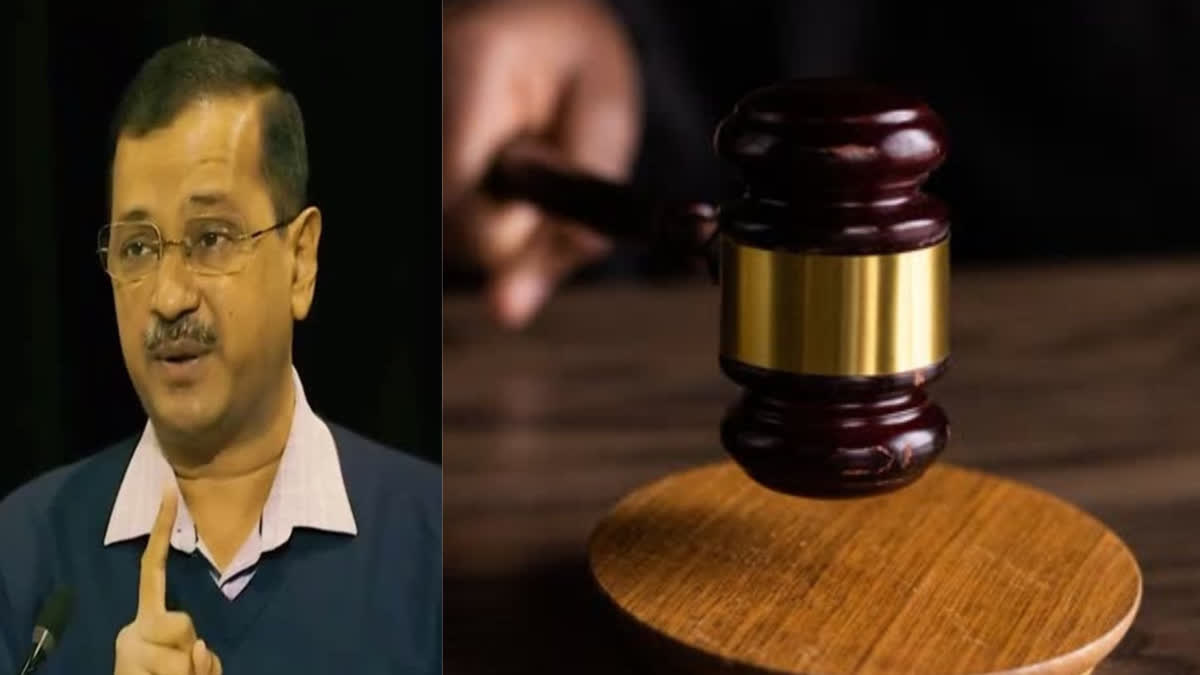New Delhi: Can Delhi Chief Minister Arvind Kejriwal run his government from inside the jail? If it is not constitutionally possible, then the Lieutenant Governor of Delhi can intervene and citing constitutional breakdown, he can suggest to the central government to impose President's Rule, said former bureaucrats and experts.
“If he (Arvind Kejriwal) does not resign saying he will run the government from jail, it will invite constitutional breakdown where the government can’t run. He can neither conduct cabinet meetings from jail nor can he give any directions. In that situation, following suggestions from the Lieutenant Governor, the central government can intervene and impose President's rule,” said senior bureaucrat and former chief secretary of Delhi Omesh Saigal told ETV Bharat.
Saigal, however, said that if Kejriwal resigns, the other legislator of the party can become Chief Minister and start running the government.
“The jail manual also does not allow a person to run a government from inside the jail. Jail authorities can only allow jail inmates to have food from outside, clothes, meeting an advocate, meeting doctors and families. Jail manual does not allow an individual to run his government from inside the jail,” said Saigal referring to the jail manual.
Asserting that getting bail in Prevention of Money Laundering Act (PMLA) case is very tough, Saigal said that if a court passes an order for Kejriwal’s temporary bail, he can continue as a CM.
The Enforcement Directorate (ED) on Thursday arrested Delhi Chief Minister Arvind Kejriwal under the Prevention of Money Laundering Act (PMLA), 2002, in connection with a money laundering case related to a liquor scam. Bail under the Prevention of Money Laundering Act, 2002 (PMLA) is not easily available due to its stringent provisions.
The ED arrested Kejriwal shortly after the High Court denied his plea for protection from arrest. Kejriwal becomes the second opposition Chief Minister to face tough action by the ED in the last two months. Earlier, Jharkhand Chief Minister Hemant Soren had to resign before was arrested by ED following allegations of his involvement in a graft case.
Who enjoy immunity from arrest:As per the constitution, only the President of India and Governors of states and Union Territories enjoy immunity from civil and criminal proceedings until the conclusion of their terms. Article 361 of the Constitution stipulates that these officials are not liable to any court for acts performed in the discharge of their official duties.
However, this immunity does not extend to Prime Ministers or Chief Ministers, who are subject to the principle of equality before the law as advocated by the Constitution. However, arrest alone does not warrant disqualification.
What constitutional experts say:Talking to this correspondent, senior Supreme Court lawyer and constitutional expert Satya Prakash Singh said that a Chief Minister against whom there is a criminal case, he or she can’t run the government. “Any criminal can’t sustain his or her activity of civil nature from jail. Jail manual is a statutory provision. The statutory provision always prevails. The jail manual is also very much strict in the sense that a criminal can’t run civil administration from jail,” said Singh.
Echoing the view of Saigal regarding LG’s intervention, Singh said that once the Chief Minister goes inside the jail, the Lieutenant Governor can intervene and suggest the central government for imposition of President rule.
Read More
- PIL In Delhi HC Seeks Removal Of Kejriwal As CM Following Arrest
- Congress’ Support For Kejriwal Due To Rahul Gandhi’s Anti-Hate Politics
